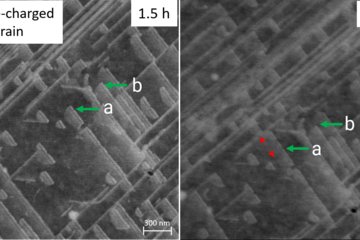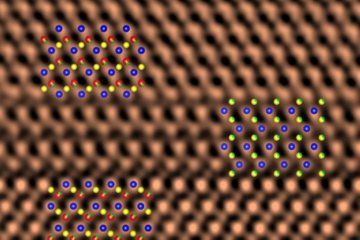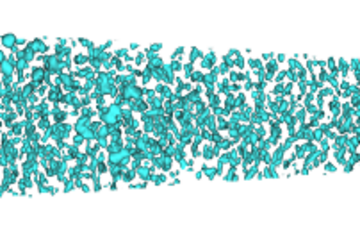All genres
61.
Talk
Surface rehybridization and strain effects on the composition and the properties of ternary III Nitride alloys. 19th International Conference on Crystal Growth and Epitaxy, Keystone, CO, USA (2019)
62.
Talk
Elastically Frustrated Rehybridization: Implications in Alloy Ordering and Strong Compositional Limitations in Epitaxial InGaN Films. 1st German Austrian Conference of Crystal Growth, Vienna, Austria (2018)
63.
Talk
Physics, growth mechanisms, and peculiarities of III-N surfaces from ab-initio. Seminar at Institute for solid state physics, Technical University Berlin, Berlin, Germany (2017)
64.
Talk
Elastically frustrated rehybridization of InGaN surfaces: Implications on growth temperature and alloy ordering. Spring school on short period superlattices, Warsaw, Poland (2017)
65.
Talk
Ordering Phenomena in InGaN Alloys-An Ab-Initio Thermodynamics Study. International Workshop on Nitride Semiconductors (IWN2016), Orlando, FL, USA (2016)
66.
Talk
Epitaxial Growth of III-Nitrides: Insights from Density Functional Theory Calculations. Seminar at University of Crete, Physics Department, Crete, Greece (2016)
67.
Talk
Interplay of kinetics and thermodynamics of epitaxially grown wide bandgap semiconductors. 10th Asian-European Conference on Plasma Surface Engineering, Jeju Island, South Korea (2015)
68.
Talk
Revealing Hidden Surface States of Non-Polar GaN Facets by an Ab Initio Tailored STM Approach. 10th International Conference on Nitride Semiconductors, Washigton DC, USA (2013)
69.
Talk
Nano-to-macro-scale modeling of hierarchical biocoposites. SPP 1420 Summer School, UIm, Germany (2013)
70.
Talk
Arthropod cuticle: A biological multi-functional composite used as template for nano-to-macro-scale hierarchical modeling. Seventh International Conference on Materials Structure and Micromechanics of Fracture, Brno, Czech Republic (2013)
71.
Talk
Arthropod cuticle: A biological multi-functional composite used as template for nano-to-macro-scale hierarchical modeling. Advanced Materials 2013, Zhenjiang, China (2013)
72.
Talk
Alloy fluctuations in III-Nitrides revisited by aberration corrected transmission electron microscopy. International Workshop on Nitride Semiconductors 2012, Sapporo, Japan (2012)
73.
Talk
Ab initio calculations of energetics, adatom kinetics, and electronic structure of nonpolar and semipolar III-Nitride surfaces. PolarCoN Summer School, Kostanz, Germany (2012)
74.
Talk
Dislocation Mechanisms and Strain Relaxation in the Growth of GaN on Silicon Substrates for Solid State Lighting. International Conference on Extended Defects in Semiconductors, Thessaloniki, Greek (2012)
75.
Talk
Excitonic emission from a-type screw dislocations in GaN. International Conference on Extended Defects in Semiconductors, Thessaloniki, Greek (2012)
76.
Talk
Towards an ab-initio based understanding of H-embrittlement: An atomistic study of the HELP mechanism. Joint Hydrogenius and ICNER International Workshop on Hydrogen-Materials Interactions, Kyushu, Japan (2012)
77.
Talk
Arthropod cuticle: A biological multi-functional composite used as template for nano-to-macro-scale hierarchical modelling. EURO Bio-inspired Materials, International School and Conference on Biological Materials Science, Potsdam, Germany (2012)
78.
Talk
Ab-initio Study of Indium Adsorption in c-plane InGaN. SINOPLE meeting, Düsseldorf, Germany (2011)
79.
Talk
Ab-initio based comparitive study of In incorporation and surface segregation on III- and N-face {0001} InGaN surfaces. 9th International Conference of Nitride Semi-Conductors, Glasgow, UK (2011)
80.
Talk
Ab-initio based growth simulations of Ga- and N- polar InGaN surfaces: A comparitive study. CM-Workshop, Akademie Biggesee, Attendorn, Germany (2011)











